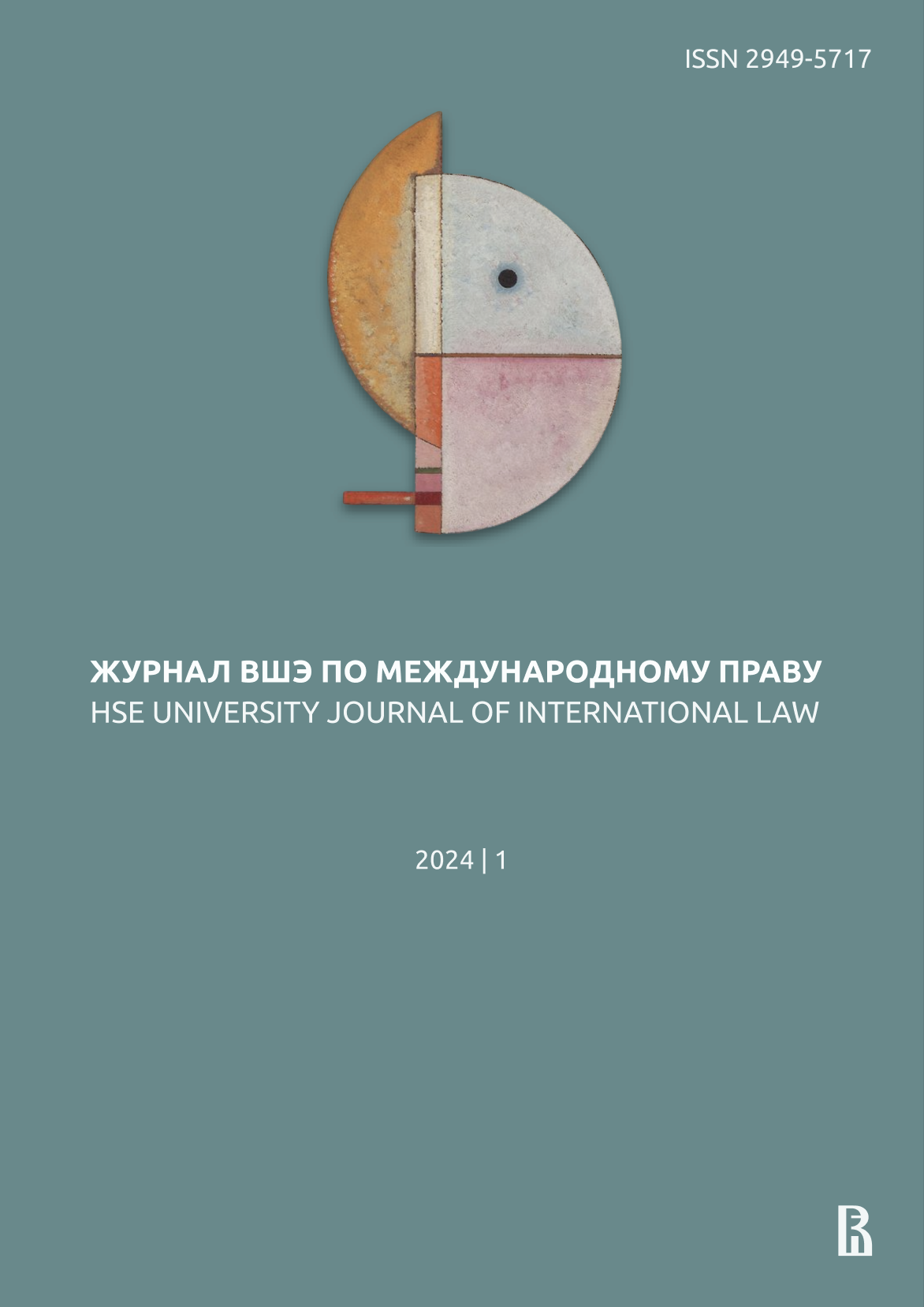Комментарий к решению Международного Суда от 31 января 2024 года по делу о применении Международной конвенции о борьбе с финансированием терроризма и Международной конвенции о ликвидации всех форм расовой дискриминации (Украина пр. Российской Федерации)
Аннотация
В статье анализируются ключевые аспекты решения Международного Суда от 31 января 2024 по делу о применении Международной конвенции о борьбе с финансированием терроризма и Международной конвенции о ликвидации всех форм расовой дискриминации (Украина против Российской Федерации), производство по которому Украина инициировала в связи с событиями 2014 года в Крыму (далее — Решение от 31 января 2024 года). Истец утверждал, что Россия нарушила ряд положений указанных конвенций, в частности уклонившись от сотрудничества в рамках режима Международной конвенции о борьбе с финансированием терроризма (далее — МКБФТ) при расследовании возможных случаев финансирования террористической деятельности, в которой украинская сторона обвиняла вооруженные формирования на территории Донецкой и Луганской Народных республик, а также осуществляя политику расовой дискриминации в отношении крымских татар и этнических украинцев, проживающих на территории Крыма, противоречащую Международной конвенции о ликвидации всех форм расовой дискриминации (далее — МКЛРД). Суд обоснованно отклонил большую часть требований Украины, корректно применив соответствующие положения МКБФТ и МКЛРД и дав взвешенную оценку доказательствам, представленным сторонами. В то же время некоторые выводы Суда представляются непоследовательными. Так, Суд не оценивал содержание возражения России, основанного на доктрине «чистых рук», сославшись лишь на неопределенный статус этой доктрины в международном праве и приведя формальный довод о ее неприменимости на стадии рассмотрения дела по существу. В равной степени сомнительным является и утверждение о презумпции дискриминации этнических украинцев и нарушении их права на получение образования на родном языке, основанное лишь на статистических данных, показывающих, что после 2014 года число учеников, получавших образование на украинском языке, значительно уменьшилось. Тем не менее, сдержанным подходом к аргументам о толковании МКБФТ и МКЛРД и к представленным сторонами доказательствам в Решении от 31 января 2024 года Суд продемонстрировал ясное понимание своей роли, функций и пределов мандата по МКБФТ и МКЛРД.
Скачивания
Литература
Djajic S. (2008) Victims and Promise of Remedies: International Law Fairytale Gone Bad. San Diego International Law Journal, vol. 9, pp. 329–366.
Fasoli E. (2008) Declaratory Judgments and Official Apologies as Forms of Reparation for the Non-Material Damage Suffered by the State: the Djibouti-France Case. The Law & Practice of International Courts and Tribunals, vol. 7, no. 2, pp. 177–192. DOI: https://doi.org/10.1163/157180308x373086
Kolb R. (2013) The International Court of Justice. Hart Publishing. DOI: https://doi.org/10.5040/9781509922109
Palchetti P. (2019) Making and Enforcing Procedural Law at the International Court of Justice. Questions of International Law, vol. 61, pp. 5–20.
Stein A. (2005) Allocation of the Risk of Error in Civil Litigation, Foundations of Evidence Law. Oxford University Press. DOI: https://doi.org/10.1093/acprof:oso/9780198257363.003.0007
Stirner T. (2021) The Procedural Law Governing Facts and Evidence in International Human Rights Proceedings. Brill Nijhoff. DOI: https://doi.org/10.1163/9789004463134
Stoica V. (2021) Remedies before the International Court of Justice: A Systemic Analysis. Cambridge University Press. DOI: https://doi.org/10.1017/9781108855006
Tsatsos A. (2009) Burden of Proof in Investment Treaty Arbitration: Shifting? Humboldt Forum Recht, pp. 91–104.
Это произведение доступно на условиях CC BY-NC-ND 4.0


